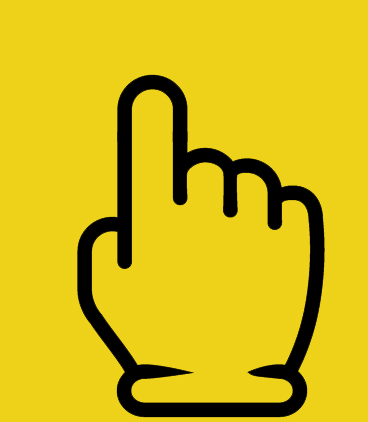
A candidate's abilities, credentials, and suitability for the position are generally evaluated through a series of questions asked during job interviews. While the majority of interview questions are simple, there are times when interviewers may include difficult or unexpected questions to see how quickly a candidate can come up with a solution.
Candidates may feel uncomfortable and caught off guard by these inquiries. However, applicants can respond gracefully and confidently by comprehending the rationale behind these difficult questions and using the appropriate approaches.
In this article, we'll look at practical methods for dealing with challenging interview questions, such as how to understand the motivation behind them, how to stay cool under pressure, how to give intelligent answers, and how to draw on personal experiences to prove your expertise.
What Are the Negative Interview Questions And How to Answer Tricky Interview Questions?
1. What is something people presume about you that is not exactly?
This is the thing that one of our partners portrays as an "introspective inquiry," and there are comparable ones that surface too, for example, Inform me regarding a blunder in judgment that you made in the most recent year. What was its effect?
When have you been generally satisfied in your life?
The most effective method to Answer It
The objective of these inquiries is to test how mindful you are yet additionally that you are so open to talking about imperfections and mix-ups. You ought to have the option to share some legitimate encounters yet in addition centre around turning those negative encounters into positive ones.
2. What task does actually repels you?
Like other thoughtful questions, there's one key qualification here: this inquiry is intended to inform your questioner more regarding your working style. It is safe to say that you are a greater amount of an autonomous specialist? An aficionado of gathering ventures? Yet in addition, would you say you are mindful of how you work best? Since at last, they need to enlist somebody who realizes how to request what they have to perform.
Start by concentrating on a shortcoming you've perceived in yourself, for example, "I've never been the most agreeable before swarms so I've constantly feared open talking or displaying in enormous gatherings. This shows you're willing and open to do the things you would prefer not to do — on the grounds that we should be genuine, no activity is fun constantly.
3. What are you as of now perusing?
At the point when I plunked down to compose this article, three out of five individuals I asked said they'd been given this inquiry previously. I have, as well. So plainly, it's a famous one with contracting chiefs, despite the fact that it appears to be out of fantasy land.
The most effective method to Answer It
Don't hesitate to incorporate a few insights regarding the present novel or journal you have on your end table—this is an extraordinary method for giving some character, which makes your questioner bound to interface with you — yet we'd likewise prescribe binds it back to your profession.
4. If we gave you a $1 million promoting spending plan, where might you spend it and how might you measure ROI?
These are what our author alludes to as "contextual investigation questions." It's tied in with getting into points of interest and testing your insight into the organization you're applying to — which clearly, you ought to have examined before your meeting. Different models:
What issues should the group think about when assessing the estimation of XYZ organization's current product offering?
Whenever employed, what might you want to change about our organization/your specialization?
This is tied in with demonstrating reasonable information on the organization's objectives and interests, just as a shrewd basic eye. Get as explicit as conceivable as you're talking, and don't be reluctant to approach inquiries of your questioner for lucidity. It doesn't hurt either to make reference to collaboration and counselling to take care of business.
5. What is this gap in your resume?
Possibly you got laid off or terminated, perhaps you went on vacation to bring up a youngster, or possibly you got some much-needed rest to travel. In the event that a questioner sees a missing timeframe, they'll likely get some information about it.
Particularly if you got terminated, it's fundamental that you keep your reaction compact and the attention on how you assumed responsibility for the circumstance and why you're prepared to return to work. One great approach to turn this is to concentrate on the things you got the hang off during your time of joblessness.
Tips To Answer Tricky Job Interview Questions
It's crucial to address challenging interview questions with a strategic mentality and level of preparedness. Here are some excellent pointers on how to confidently respond to these difficult questions.
It is important to take a moment to comprehend the question. Frequently, difficult interview questions will be phrased in a convoluted or confusing way. It's crucial to completely understand the question before responding. Spend some time dissecting it to determine what the interviewer is really asking by breaking it down into its component parts. You can respond in a more focused and pertinent manner if you comprehend the question.
It is crucial to maintain composure and cool throughout the interview. Your capacity to tolerate pressure is tested by difficult questions. You can show that you are able to think clearly and navigate challenging situations with grace by keeping your composure. Breathe deeply, stand straight, and make sure you are making steady eye contact with the interviewer. These nonverbal clues will exude composure and assurance.
Moreover, it's a good idea to pause and gather your thoughts before answering to a challenging topic. Take some time to collect your thoughts and come up with a thoughtful response rather than responding right away. Take this moment to mull through several approaches or viewpoints that might be relevant to the query.
An answer that has been thought through and organized will be more thoughtful and well-spoken.
Additionally, when responding to challenging inquiries, it's critical to be genuine and honest. Some inquiries might focus on your flaws, mistakes, or difficult circumstances. Although it may be tempting, the most important thing is to be honest. Acknowledge any flaws or difficulties honestly, but also mention the steps you took to strengthen or get through them. You can show that you can learn and adapt under trying conditions by exhibiting self-awareness and a growth attitude.
Finally, practice is essential. Be aware of any difficult questions before your interview and be prepared. Examine typical difficult interview questions in your sector or profession and practice your answers. To organize your responses and offer particular examples from your experiences, think about using the STAR approach (Situation, Task, Action, Result).
What are the Tricky Questions Asked in Interviews?
Candidates frequently face a variety of challenging questions during job interviews that are intended to gauge their critical thinking, problem-solving skills, and suitability for the position. There are some frequent types of difficult questions that candidates may encounter, while the precise questions can differ depending on the sector and position.
Behavioral questions are one class of challenging questions. These inquiries seek to gauge how past candidates have handled particular circumstances. For example, a question like, "Tell me about a time when you faced a conflict with a coworker and how you resolved it." This type of inquiry requires candidates to provide concrete examples from their previous experiences and demonstrate their ability to handle complex interpersonal dynamics.
It enables interviewers to evaluate a candidate's emotional intelligence, conflict-resolution skills, and communication skills.
Hypothetical situations are another class of challenging questions. These inquiries use fictitious scenarios to gauge a candidate's capacity for problem-solving and judgment. In an interview, a question like, "How would you handle a situation where you have conflicting deadlines and limited resources?" might be asked. Candidates must have the ability to solve problems quickly and logically. These inquiries gauge a candidate's capacity for complicated situational analysis, job prioritization, and problem-solving under time constraints.
Another type of tough questions that interviewers may employ are puzzles or brainteasers. These inquiries are intended to gauge a candidate's capacity for original thought and problem-solving. In an interview, the question "How many golf balls can fit in a school bus?" might be used as an example. Candidates must exhibit analytical thinking abilities and show a logical process for arriving at an estimate. These questions test a candidate's capacity for creative problem-solving, logical reasoning, and handling abstract ideas.
Other challenging questions can be those that inquire about flaws, moral dilemmas, or future objectives in addition to these examples. Candidates are pushed by these questions to be honest with themselves and show that they are able to learn and develop.
To learn more about a candidate's abilities, cognitive processes, and prospective fit inside the organization, difficult questions should be asked.
Candidates should examine frequent interview questions in advance and practise their answers in order to successfully traverse challenging queries. It is crucial to demonstrate critical thinking abilities, offer precise examples, and have a positive outlook even in the face of difficult issues. Candidates can approach interviews with confidence and successfully convey their qualifications and fitness for the position by anticipating and preparing for these types of inquiries.
Conclusion On “Tricky Job Interview Questions”
Careful planning, poise, and adaptability are required while responding to challenging interview questions. Candidates can effectively maneuver through difficult interview situations by understanding the nature of these questions and using the solutions covered in this article.
Never forget to prepare intelligent solutions for difficult queries and to confidently highlight your qualifications and skills. It's important to show that you have the ability to think critically and solve problems during interviews in addition to giving the right responses. You can successfully turn the tables, answer challenging questions with poise, and make an impression on interviewers by keeping in mind these strategies.
Hope you liked reading this article on “Trickiest Job Interview Questions and how to handle them”.
If you have any queries or questions, you can reach out at info@interview-expert.com.
For more guidance on interview preparation, contact Interview Expert.

